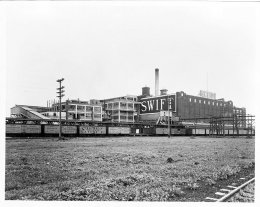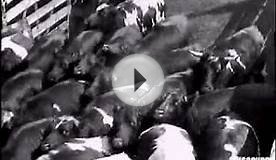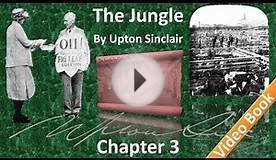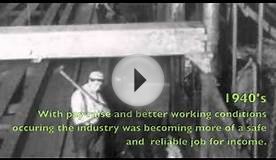Upton Sinclair meat packing industry
 As a person who advocates for the elimination of the coercively funded state and the supremacy of property rights, I often find myself involved in arguments over the need for inspection and regulation of food and drug products. Typically one of the first things I’m told to read is Upton Sinclair’s muckraking novel “The Jungle, ” which supposedly exposes the terrible conditions of food processing plants prior to the imposition of federal inspections. In this article, I will explain why the entire novel is a pure work of fiction.
As a person who advocates for the elimination of the coercively funded state and the supremacy of property rights, I often find myself involved in arguments over the need for inspection and regulation of food and drug products. Typically one of the first things I’m told to read is Upton Sinclair’s muckraking novel “The Jungle, ” which supposedly exposes the terrible conditions of food processing plants prior to the imposition of federal inspections. In this article, I will explain why the entire novel is a pure work of fiction.
The truth of the matter is that the large corporate meat packers had been lobbying for federal inspection mandates decades prior to Sinclair’s novel. There were several reasons why the large producers, like Cudahy, Armour and Swift, wanted federally mandated inspections. The major reasons were:
1. Government inspections added a large fixed operating cost to producers due to the administrative overhead. While this may sound counter-intuitive, this effectively serves as a large barrier to entry into the meat packing business. The smaller packers do not have the economy of scale to be able to absorb this fixed cost so they end up being run out of business by the large producers because the small guys necessarily need to raise the price of their meat higher to account for the additional fixed compliance costs.
2. The Europeans at the time had begun barring meat imports to protect their own meat producers profits under the guise of preventing “diseased meat” from being imported. So the Europeans were requiring that imported meats undergo an inspection process. Thus, the US meat packers had to have their meat inspected anyways by private inspectors if they wanted to be able to export their meat. By lobbying the US government to inspect their meat, the US large meat packers could pass some of the cost of this inspection process, that had to happen anyways, on to the tax payers. This served to socialize some of the inspection costs for the large US meat exporters, while simultaneously driving up the fixed compliance costs for smaller producers.
Since the smaller producers did not generally engage in export, they didn’t bother to have their meat inspected – thus, the smaller producers were able to compete with large producers in local markets. By forcing all meat packers to undergo inspection, the government basically ran the small meat packing operations out of business.
3. The inspection seal effectively serves as a fantastic marketing gimmick. It provides a false sense of security to US consumers and legitimizes the meat processed as being approved by the US government. Jonathan Ogden Armour, President of Armour and Company, one of the largest meat packing corporations in America, wrote the following in a March 1906 Saturday Evening Post article:




 Bubbly Creek is the nickname given to the South Fork of the Chicago River's South Branch, which runs entirely within the city of Chicago, Illinois, US. Gases bubbling out of the riverbed from the decomposition of blood and entrails dumped into the river by the local stockyards in the early 20th century give the creek its name. It was brought to...
Bubbly Creek is the nickname given to the South Fork of the Chicago River's South Branch, which runs entirely within the city of Chicago, Illinois, US. Gases bubbling out of the riverbed from the decomposition of blood and entrails dumped into the river by the local stockyards in the early 20th century give the creek its name. It was brought to...